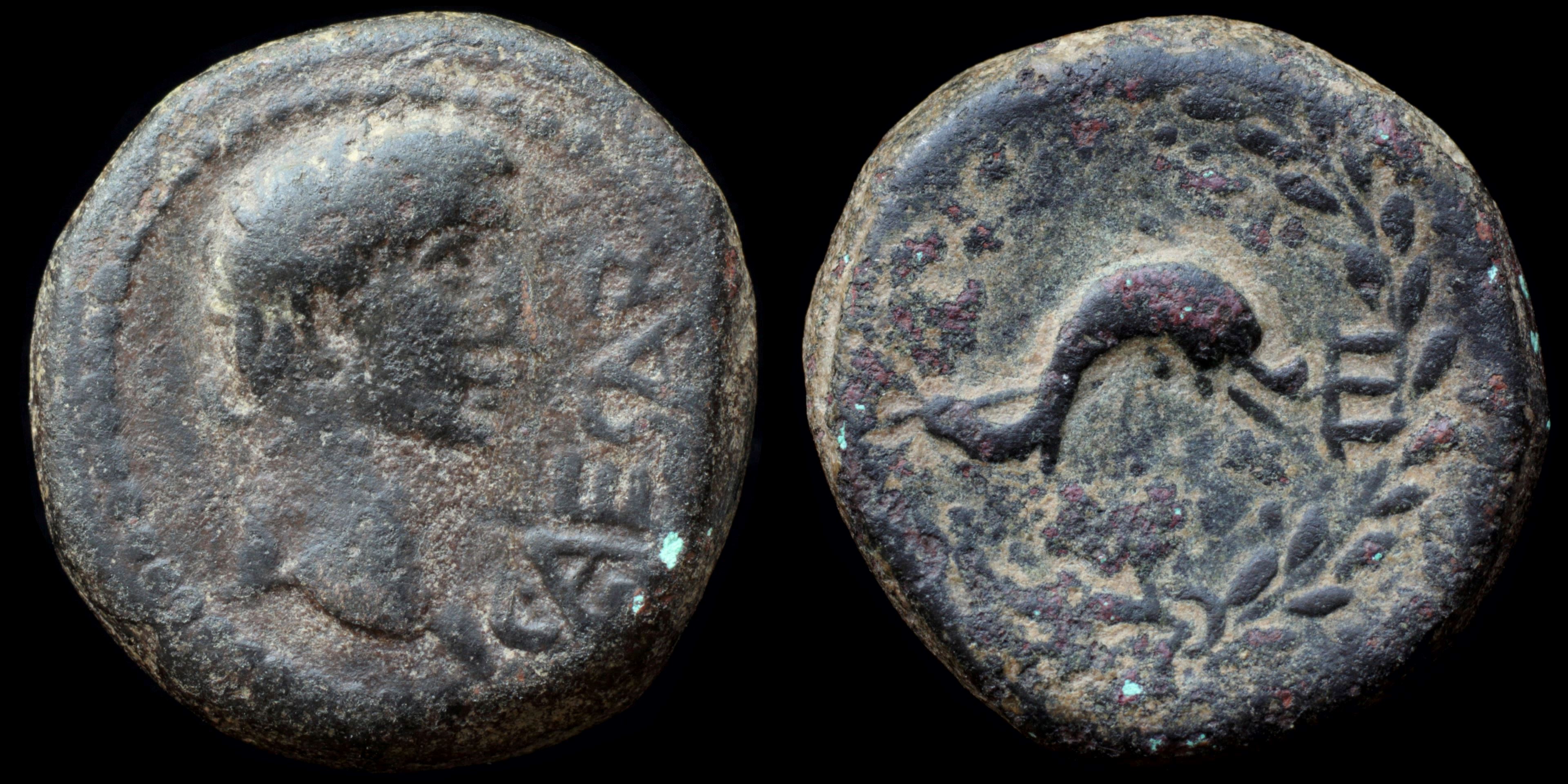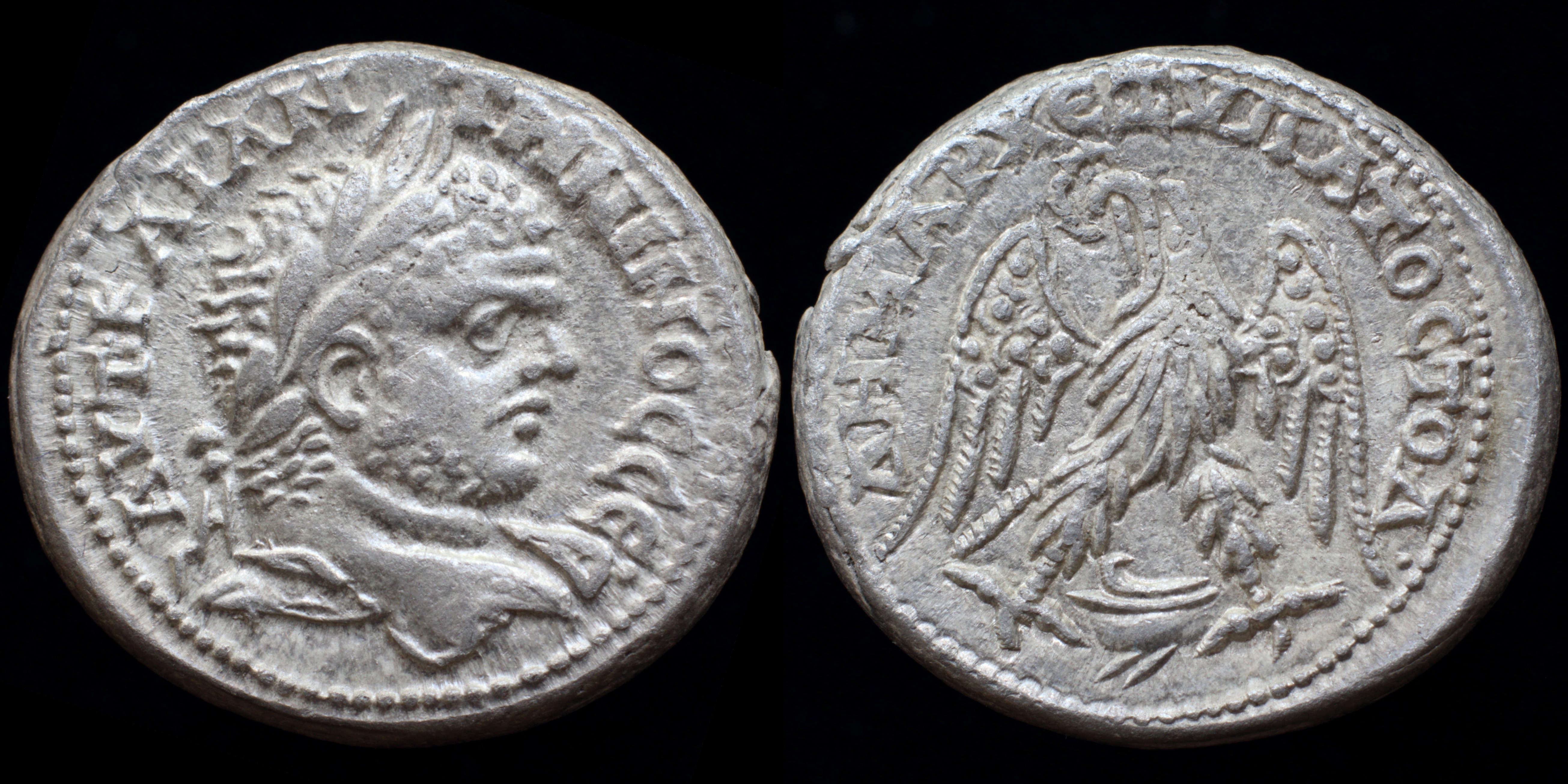Berytus was settled in prehistoric times, and is first mentioned on cuneiform tablets from the 14th century BC. The oldest settlement was on an island in the river that progressively silted up.
In 140 BC the city was destroyed by Diodotus Tryphon in his contest with Antiochus VII Sidetes for the throne of the Macedonian Seleucid monarchy. Beirut was soon rebuilt on a more conventional Hellenistic plan and renamed Laodicea in Phoenicia.
Mid-first-century coins from Berytus bear the head of Tyche, goddess of fortune; on the reverse, the city's symbol appears: a dolphin entwines an anchor. It was conquered by Pompey in 64 B.C. The city was assimilated into the Roman Empire, veteran soldiers were sent there, and large building projects were undertaken. The city was considered the most Roman city in the eastern provinces of the Roman Empire.
In 140 BC the city was destroyed by Diodotus Tryphon in his contest with Antiochus VII Sidetes for the throne of the Macedonian Seleucid monarchy. Beirut was soon rebuilt on a more conventional Hellenistic plan and renamed Laodicea in Phoenicia.
Mid-first-century coins from Berytus bear the head of Tyche, goddess of fortune; on the reverse, the city's symbol appears: a dolphin entwines an anchor. It was conquered by Pompey in 64 B.C. The city was assimilated into the Roman Empire, veteran soldiers were sent there, and large building projects were undertaken. The city was considered the most Roman city in the eastern provinces of the Roman Empire.
Modern location: Beirut, Lebanon
(1)
Augustus

Obverse: bare head right; CAESAR
Reverse: Dolphin entwined around trident within laurel wreath
Diameter:
18.5 mm
Die Orientation: -
Weight: 9.6 g
Die Orientation: -
Weight: 9.6 g
No notes for this coin
RPC 4536; Rouvier 486; Sawaya 143
(2)
Caracalla

An
AR
Tetradrachm
struck 215-217 AD
in
Berytus
Obverse: laureate bust right, draped shoulder; AVT·KAI·AN_TWNINOC CE·
Reverse: eagle facing, head left, wreath in beak, prow below; ΔHMAPX EΞ VΠATOC TO·Δ·
Diameter:
26 mm
Die Orientation: -
Weight: 13.4 g
Die Orientation: -
Weight: 13.4 g
No notes for this coin
Prieur 1293
